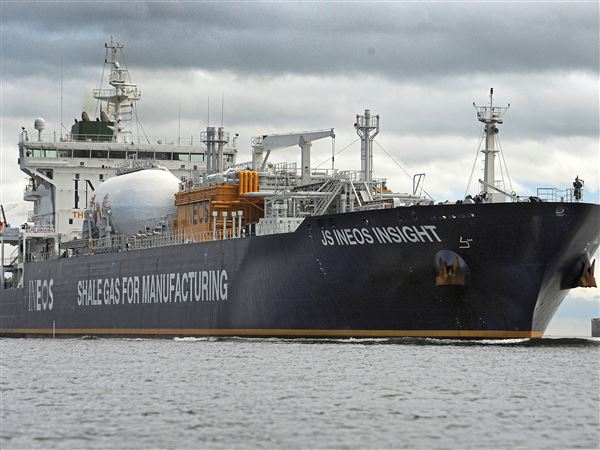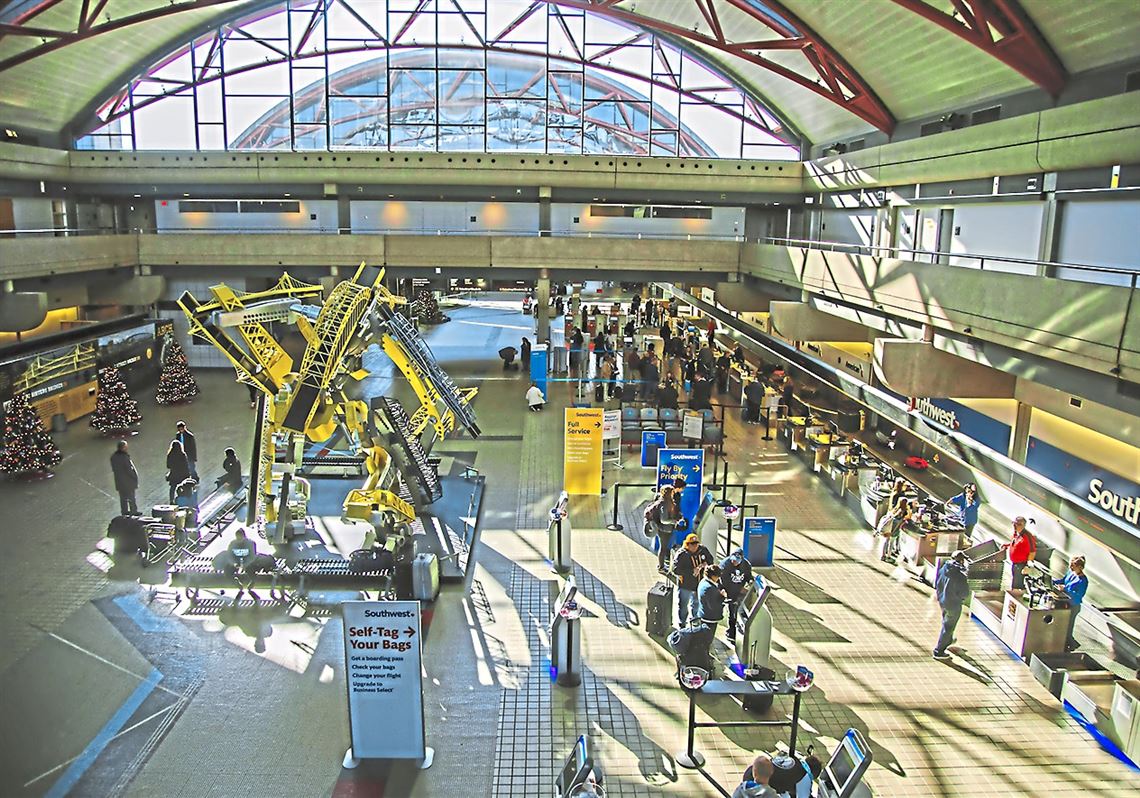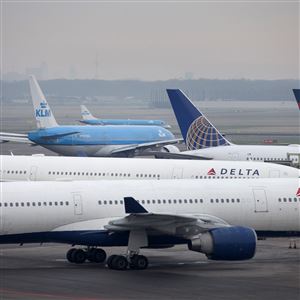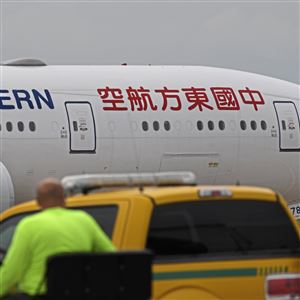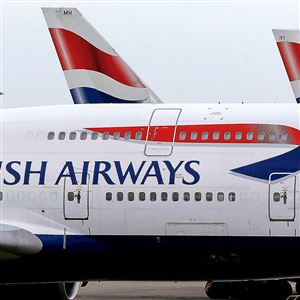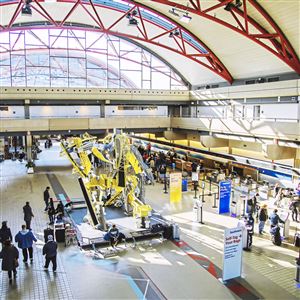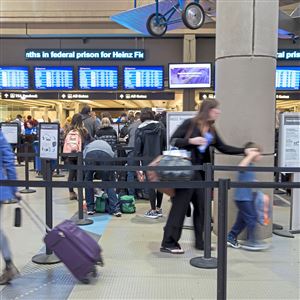The flight that will land at Pittsburgh International Airport on Friday will be unlike any other in the region’s history, even in the airport’s heyday as a hub.
Touching down will be a charter flight carrying more than 300 visitors from Shanghai. It will mark the first time a commercial flight from China has landed in Pittsburgh — one backed by nearly $1 million in incentives.
And the China Eastern Airlines Boeing 777 will be packed to brim with tourists eager to check out the sights in Pittsburgh and other parts of the United States.
The flight is one of two that China Eastern will operate between Shanghai and Pittsburgh this month. The other will arrive Aug. 11. The return flight to China that day will take home many of the visitors who are arriving this week. It also is full.
For the Allegheny County Airport Authority, this is another bid to boost service from Pittsburgh -— yet it’s different from many of the others given the market involved.
Like the British Airways service to London and the Wow and Condor flights to Iceland and Frankfurt, Germany, respectively, the stakes are high. The authority, which runs Pittsburgh International, is spending $560,000 to subsidize the flight.
The VisitPittsburgh tourism agency is kicking in another $300,000 in cash and in-kind contributions, while the Idea Foundry, a Pittsburgh-based nonprofit that works with Chinese families and students to encourage educational ties and investment, is spending $50,000.
Those subsidies are part of a three-year agreement with tour operator Caissa Touristic to market and sell trips to Pittsburgh. The flight itself is guaranteed for only one year — making a good start this month all that more important.
The hope is that the two seasonal charter flights in August will lead to more in the years ahead — and eventually to regularly scheduled commercial trips.
“We want to be a regular stop for Chinese visitation,” said Craig Davis, VisitPittsburgh CEO and president.
That’s a big reason the region is rolling out the red carpet for the visitors arriving from Shanghai Friday afternoon.
There will be festivities at the airport, with volunteers available to help them navigate customs and any language barriers. All 300-plus passengers from the flight will be offered a welcome dinner at the Carnegie Science Center.
As part of their tour package, some travelers also will spend time in Pittsburgh riding the incline, taking in the sights from Mount Washington, and visiting the Carnegie museums in Oakland and the University of Pittsburgh nationality rooms before leaving for other cities.
Local officials are hoping that the visitors’ first impressions of the Steel City will be positive and that they will take to the Chinese equivalent of Twitter, Facebook and other social media platforms to spread the news.
That, in turn, could whet the appetite of others in the massive China market to visit, paving the way for more flights.
“It’s really important that we are ready for prime time on this one,” said Christina Cassotis, airport authority CEO.
She believes one reason Pittsburgh is appealing to Caissa is that it is a good match for what a lot of Chinese travelers are looking for.
That includes lots of green space, cultural and dining attractions, and sports. Ms. Cassotis said, for example, that architect Frank Lloyd Wright, the designer of Fallingwater, and artist Andy Warhol are well known in China.
The 300 tourists arriving on Friday represent an encouraging start, Ms. Cassotis said. Pittsburgh, she noted, was put up against other tour destinations by Caissa and travelers selected it.
“This is a choice people are making to come here,” she said.
The Pittsburgh-to-Shanghai flight Aug. 3 and the Shanghai-to-Pittsburgh leg Aug. 11 are at about 30 percent capacity overall, Ms. Cassotis said.
Those two flights are the ones that involve the authority subsidies. The $560,000 is what it would pay based on empty planes for both flights. The fact that about 200 tickets have been sold altogether means the authority should be on the hook for less.
While Ms. Cassotis would have liked to have seen more tickets sold, she was heartened by the 30 percent given that it took time to secure a plane and there wasn’t a lot of time to sell tickets.
“We’re encouraged that we got 30 percent sold in a very short window,” she said.
Some of those coming on the Aug. 11 Shanghai-to-Pittsburgh flight are students at the University of Pittsburgh or Carnegie Mellon University.
Mr. Davis said round-trip airfare on the flights starts at about $888.
The China charter was nearly a year late in starting, in part to find a plane and to give Caissa more time to sell tickets.
Whether the service continues beyond this year depends in part on the success of the inaugural flights, the demand for more in China and the availability of a plane, Ms. Cassotis said.
“We hope people are going to go back and tell everyone this is fantastic. That will create demand and help us determine what the appetite is for next year,” she said.
As for regular nonstop commercial service, don’t expect it anytime soon. Ms. Cassotis said it could take as much as seven years, even if the charter flights go well.
“We’re playing the long game with the Chinese market. We’re starting in a modest manner and hope to see that increase over time,” she said.
Mark Belko: mbelko@post-gazette.com or 412-263-1262.
First Published: August 2, 2018, 10:28 a.m.

